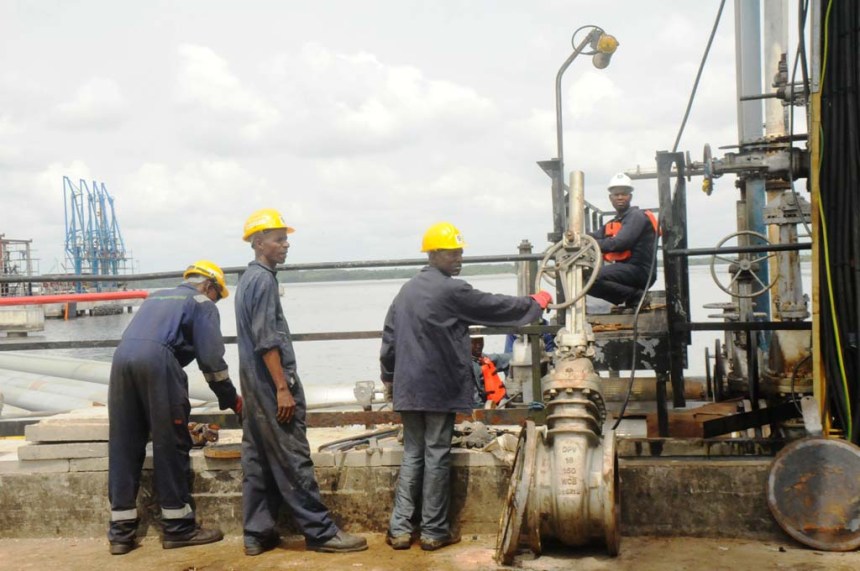There are no products in your shopping cart.
| 0 Items | £0.00 |

 NIGERIA got a big independence day present yesterday as global oil prices rallied to their highest level in four years escalating to as high as $85 a barrel amid fears that there could be a reduction in supplies as a result of sanctions against Iran.
NIGERIA got a big independence day present yesterday as global oil prices rallied to their highest level in four years escalating to as high as $85 a barrel amid fears that there could be a reduction in supplies as a result of sanctions against Iran.
It is expected that the US may soon impose economic sanctions against Iran over disagreements on nuclear disarmament. With the US action due to kick in next month, the international benchmark price Brent crude oil, which is identical to Nigeria's Bonny light crude futures rose to $85.02 per barrel yesterday.
This is the highest crude oil prices have reached since November 2014 when they began a downward spiral from what was an all time high of $140 a barrel. QA spokesman for ANZ Bank said that the market is now eyeing possible oil prices of $100 a barrel despite expectations that China would ignore US sanctions.
China’s state owned corporation Sinopec is, however, halving its loadings of crude oil from Iran this month, in a sign that pressure from Washington is having an effect. US President Donald Trump also called Saudi Arabia’s King Salman over the weekend to discuss ways to maintain sufficient supply once Iran’s exports are hit by sanctions due to kick in come November.
Norbert Ruecker, the head of commodity research at Swiss bank Julius Baer, added: "Oil prices continue to climb, supported by the nearing Iran embargo and related supply concerns. The supply situation looks fragile indeed, as any additional shortfall such as a deterioration of the situation in Venezuela would tighten oil supplies."
Washington's sanctions are set to start on November 4 and analysts say there may not be enough spare production capacity in the short-term to meet demand, potentially requiring large storage drawdowns. Already, the Organisation of the Petroleum Exporting Countries (Opec), of which Iran is a member, has struggled to replace export reductions.
President Trump said the sanctions are aimed at imposing maximum economic pressure on Iran after Tehran refused to budge on a nuclear disarmament deal. In May, President Trump signed an order reinstating sanctions against Iran due to kick in next month, pointing out that the only way for Tehran to avert sanctions would be to agree to negotiations over its missile and nuclear programmes.
Nigeria currently has an Opec quota of 1.8m barrels a day but has been unable to meet this due to supply disruptions as a result of problems in the Niger Delta. In 2012, Nigerian production soared to a high of 2.7m barrels a day, exceeding the then Opec quota of 2.5m barrels a day and if output rises to that level again at $100 a barrel, the economy could be in for a big boost.